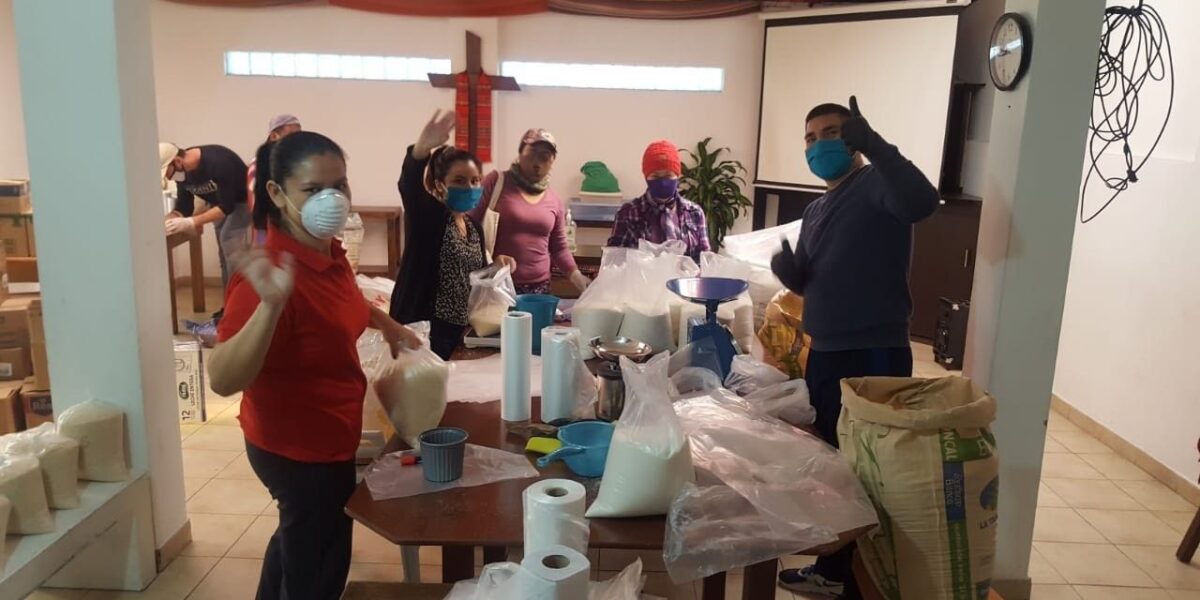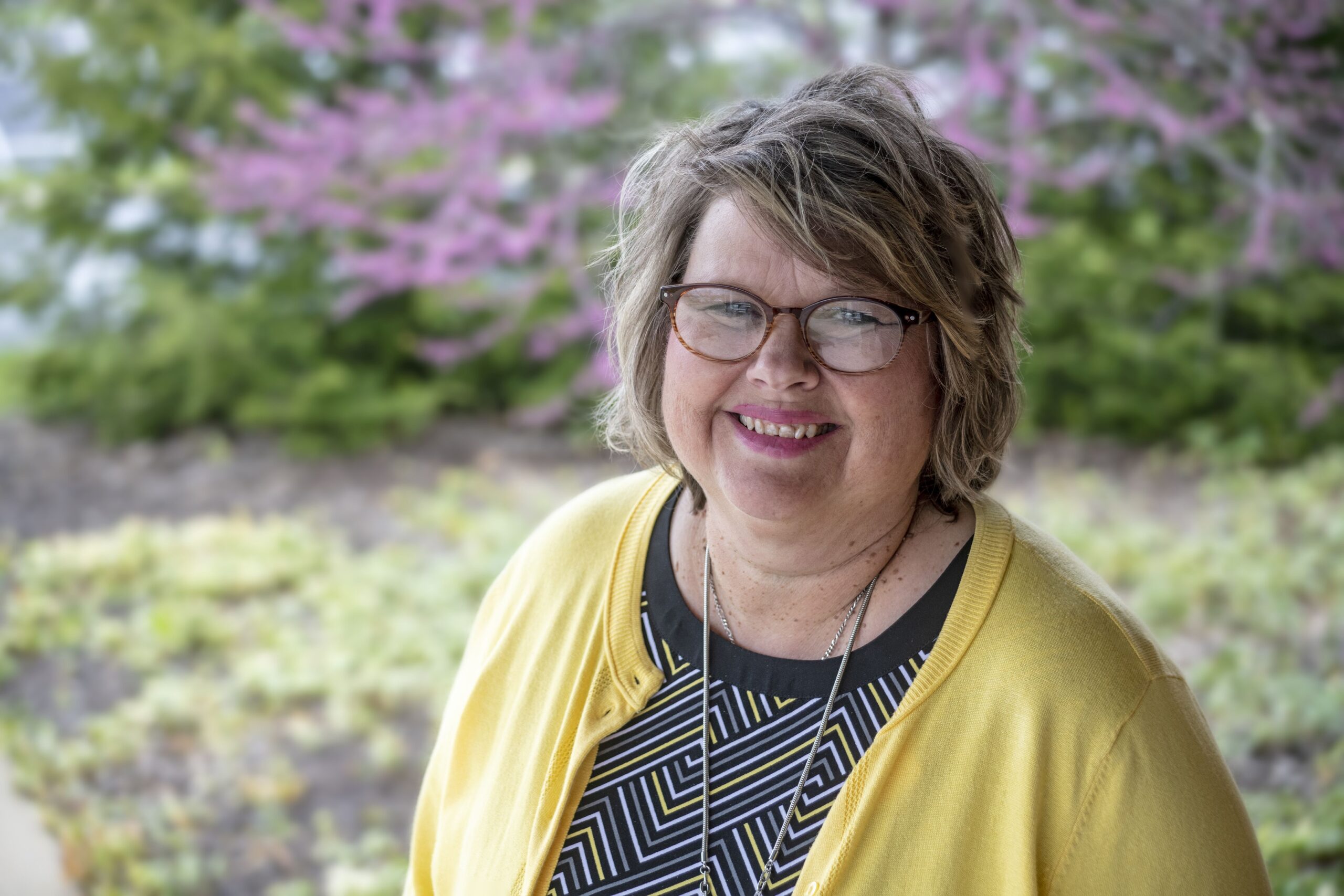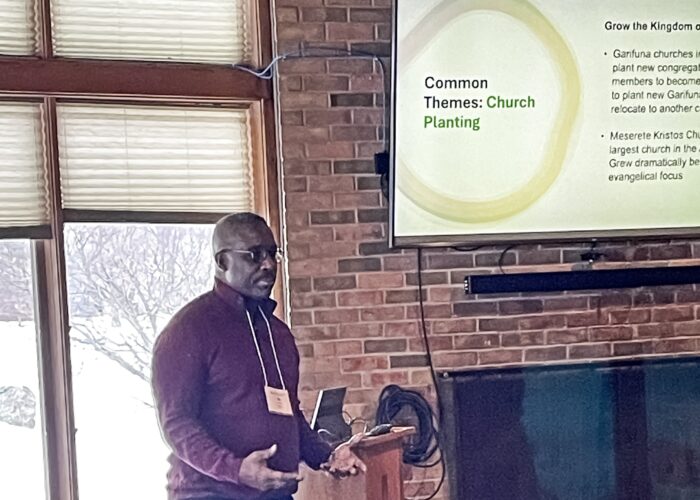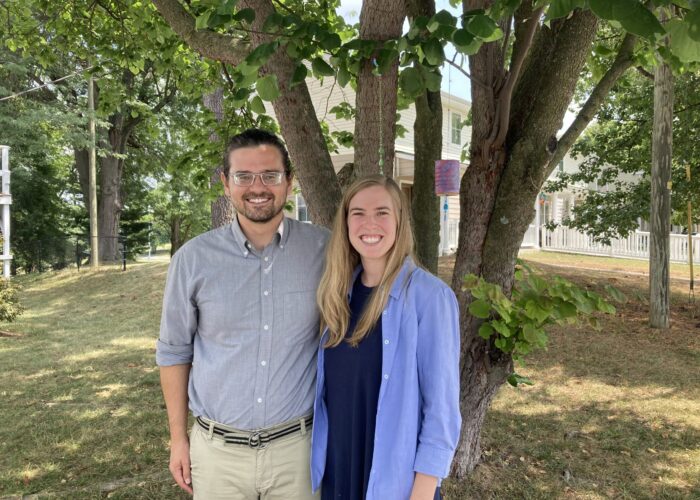NEWTON, Kansas (Mennonite Mission Network) — In early February, Jaden Hostetter began serving with Mennonite Mission Network in the ministries of the Iglesia Cristiana Anabautista Menonita de Ecuador (Quito Mennonite Church). When the coronavirus pandemic hit in mid-March, he said no one would have been surprised if he had returned to the States.
Hostetter surprised himself, however, by feeling drawn in the opposite direction, he said in a recent Zoom interview. Instead of wanting to leave, he felt new passion for remaining to serve.
One of the church ministries is with refugees. The city’s strict quarantine has greatly reduced refugees’ ability to pursue their livelihoods, including selling foods and crafts on the street. Helping to stave off desperation in this crisis has transformed how Hostetter sees his role, he said. The bagging and delivering of groceries have become the conduits for extending the bread of hope to Colombian and Venezuelan refugees connected with the Quito church.
"This crisis has given me a new purpose here, a passion for joining God’s work in this city," Hostetter said. "Days when I am just tinkering around my host family’s home, I wonder whether I should still be here. But then every third week comes around when we bag and deliver another round of groceries, and I become part of blessing people with an abundance of God’s resources."
Delivering groceries and hope to families’ doorsteps
While primary funding for the refugee program comes from Mennonite Central Committee, additional resources are being funneled to Quito Mennonite Church through emergency grants from Mission Network and gifts from other donors, said Linda Shelly, Mission Network’s director for Latin America.
These funds are transformed into staples such as rice, lentils, eggs, oatmeal, milk, carrots and tomatoes. Every third Tuesday, Hostetter and other team members gather at the church to bag the groceries. In March and April, they delivered the food to 60 refugee families. Recently, the church decided to increase the number of refugee families it serves at one time to 80, and hopes to continue giving this support over the next few months. The church is also providing food assistance for another 18 families involved in the congregation.
Hostetter said a couple of experiences have been particularly memorable for him in this ministry, including a home visit he did in his first two weeks on the job.
"I visited a refugee family in their two-room apartment that didn’t have electricity or windows," he said. "During the visit at 12 noon, it was so dark inside that people had to use their cell phone flashlights to see each other. That was sobering and causes me to wonder how they are making ends meet now."
Because of this need, Hostetter said team members risk breaking some tight rules regarding limited transportation, such as vehicles can only be used one day a week, with the day determined by the license plate number; the support team has two available vehicles on Thursdays.
"Because families are so spread out across the city, it is difficult to get the food to all of them with our two cars," Hostetter said. "One Thursday two of us took a taxi to deliver food, and we got stopped by the police because the current restriction is that only one person can ride in the taxi at a time.
"We had five sets of groceries to deliver, and by that time, we had delivered two of them. After convincing the police officer that we were legit, he let us deliver a third set of groceries to a family close by where we were stopped. We had to take the last two sets back to the church to be delivered later."
Pandemic cannot chase away God’s presence
Even though most of Hostetter’s time is being spent in quarantine with Patricia Miranda and Carlos Sánchez, his host family, he values the time to bond more deeply with them, he said. They have helped him to learn Spanish and adjust to the culture. He walks their dogs and runs errands.

Jaden Hostetter, who is serving with Mennnonite Mission Network in Quito, Ecuador, walks his host family’s dog, Popis, every day during the city’s COVID-19 lockdown. His host family is Carlos Sánchez and Patricia Miranda. Photo by Patricia Miranda.
Miranda wrote: "We are well, at home sharing with Jaden, our son. Now he can comprehend Spanish better and has learned vocabulary that allows him to make himself understood. … We are very pleased with his company."
The connection to his host family and the perseverance of his church family has helped to stoke the fires of Hostetter’s passion for remaining in Ecuador, he said.
"God has put a special heart in the three women who head up [the food for refugee] ministry," he said. "They model for us what it means, in this crisis, to band together as God’s family. … I don’t think Jesus would be afraid. He would break the two loaves and feed the 5,000. He would heal people. He would not walk through this in fear, but in deep, deep love for people."
Serving in Ecuador, Hostetter strives to follow in Jesus’ footsteps.





